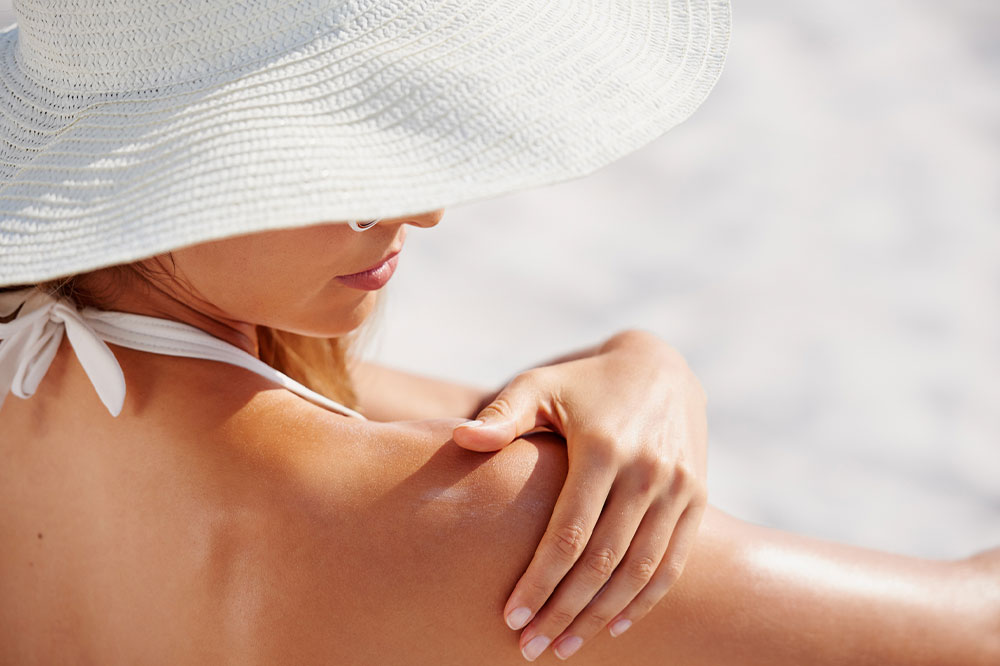Avoid These 7 Things for Healthy Skin

Maintaining skin health requires considerable care, especially if one is affected by conditions like eczema. Recognizing things to avoid when it comes to skincare can be just as important as knowing which products to use. If certain products or foods cause acne or dry skin, they could be key triggers to avoid. So here are a few things one should avoid to get healthy skin and prevent various skin issues and conditions:
What is healthy skin?
Skin is the body’s outermost layer, protecting one from environmental factors like temperature changes, toxins, and bacteria. Healthy skin helps prevent diseases like eczema, acne, psoriasis, and other skin disorders. A blemish-free skin also helps one look and feel their best. One can do multiple things to keep their skin healthy. For instance, one should try using a tinted moisturizer sunscreen on their face. Moisturizers can keep the skin hydrated and protect it from harsh, dry environments. Sunscreen protects the skin from the sun’s harmful UV rays, which can trigger premature aging, wrinkles, and even skin cancer.
Things to avoid
Excessive sun exposure
When it comes to healthy skin, avoiding too much sun exposure is essential. Prolonged sun exposure without protection can lead to premature aging, wrinkles, and other forms of skin damage. The best way to protect the skin from the sun is to wear sunscreen when stepping outside. Limiting time outdoors during peak sunlight hours is also a good idea. Whenever possible, one should seek shade and wear protective clothing and accessories such as wide-brimmed hats, long-sleeve shirts, and long pants. These steps can help keep the skin healthy and youthful for years to come.
Harsh soaps
If one has dry or sensitive skin, they should avoid using harsh soaps, as they can strip away the natural oils that keep the skin hydrated. Instead, one should choose gentle, sulfate-free cleansers or creamy, oil-based soaps that help lock in moisture. It is also essential to protect the skin from the sun’s damaging UV rays by applying a sunscreen moisturizer on the face with at least SPF 30. Applying moisturizer and sunscreen can help protect the skin from further damage. Lastly, one should moisturize their skin after every wash or shower to prevent dryness.
Hot showers or baths
Hot water may not be ideal for those with sensitive skin. Health experts recommend using lukewarm water instead to prevent skin irritation. Hot water can worsen skin problems and symptoms of eczema, so one should avoid taking extremely hot showers or baths.
Stress
Stress can increase the risk of the skin becoming dry, inflamed, and itchy. Stress can also cause breakouts, age spots, and wrinkles. Stress hormones such as cortisol can make the skin’s natural oils overactive and produce more sebum, causing acne. One should find ways to relax and manage stress levels to maintain healthy skin. Relaxation techniques like yoga or massages can help relieve stress. Getting enough sleep, making better food choices, exercising regularly, and taking breaks throughout the day are also key measures to reducing stress.
Poor food choices
Processed foods high in sugar, salt, and saturated fats increase inflammation, reduce collagen production, and exacerbate existing skin conditions. So, one should opt for a balanced food regimen with lots of fruits, vegetables, and healthy proteins, as this is the best way to keep the skin looking and feeling its best. One should avoid fried foods, refined carbohydrates, and processed meats as much as possible. Eliminating or limiting these foods can help relieve skin irritation and inflammation. Drinking plenty of water throughout the day can also keep the skin hydrated. Skin that is adequately hydrated has fewer wrinkles and looks smoother. Additionally, one should monitor portion sizes. Large and heavy meals can also cause breakouts. Eating smaller meals frequently throughout the day will give the body the nutrition it needs without increasing the risk of skin issues.
Excessive exfoliation
Exfoliation is a great way to remove dead skin cells, clean pores, and get healthy skin. However, excessive exfoliation can do more harm than good. It can cause dryness, redness, and irritation, leading to inflammation and skin damage. Exfoliating too often can strip away essential oils, leaving the skin unprotected. The most effective way to exfoliate is by using gentle products that contain natural ingredients such as sugar or oatmeal. One should also limit exfoliating to just once a week. If one has sensitive skin, they can start by exfoliating every two weeks. Also, one should avoid scrubbing too hard, which can cause irritation and redness.
Over-treating the skin
Over-treating the skin can cause more harm than good. Too many products and treatments can strip away the natural oils in the skin, leaving it dry and irritated. It can also lead to breakouts. Over-treating includes using too many harsh skin care products and over-exfoliating. When it comes to healthy skin care, less is often more. One should opt for a simple routine consisting a gentle cleanser, moisturizer, and sunscreen. One should avoid scrubbing the skin too hard or using products that contain harsh chemicals in excessive amounts. Moisturizing the skin is a great way to keep it hydrated and healthy. One can use a heavier moisturizer at night. But, it is important to adopt a simple skincare routine and mild products.
When dealing with skin conditions like eczema, one may have to seek guidance from a dermatologist or doctor to understand treatment options for the condition as well as determine eczema causes. One could develop eczema in childhood or in their teens. But what are the main causes of eczema? An overactive immune system that reacts too quickly when exposed to certain irritants can result in skin inflammation, causing eczema. This inflammation leads to itchiness and dryness in the affected areas. Identifying the causes of eczema can help prevent flare-ups. Additionally, anti-inflammatory creams or ointments can help soothe eczema symptoms. Further, certain hormonal IUDs can cause acne. So, when dealing with persistent breakouts and blemishes, they should consult a doctor to determine the cause.



